
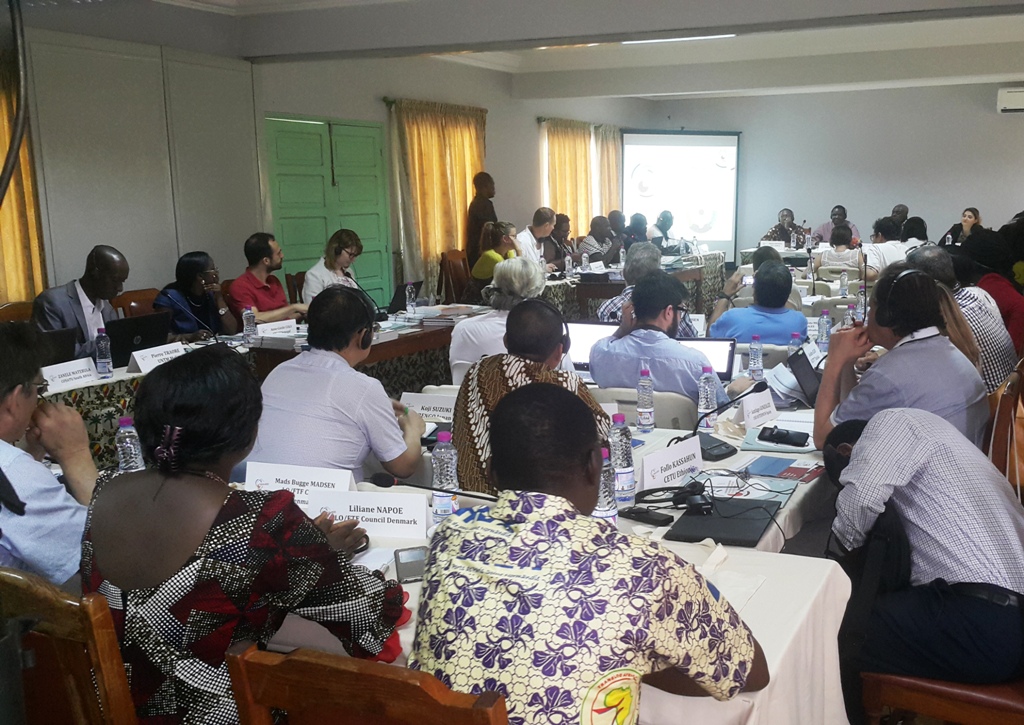
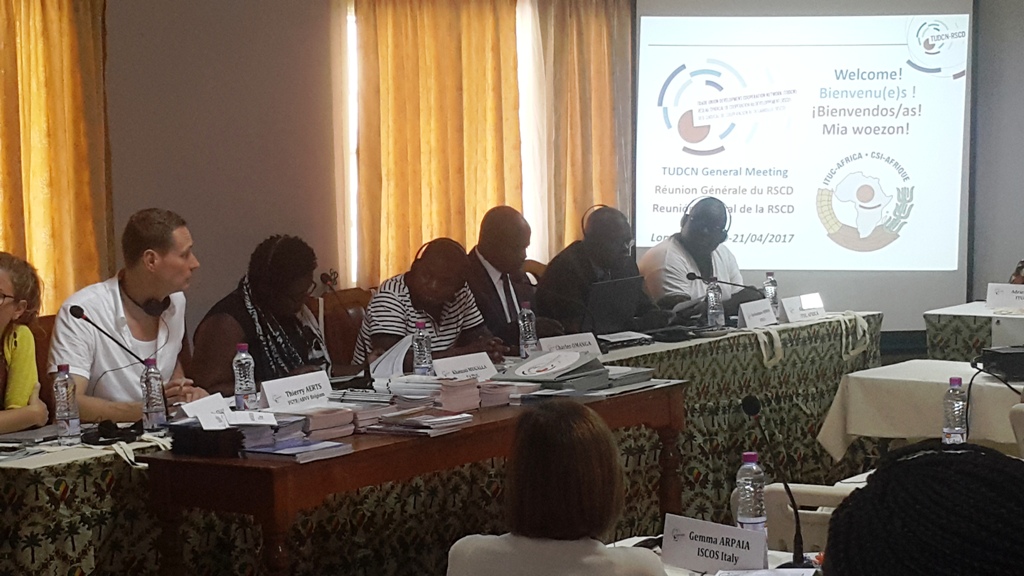
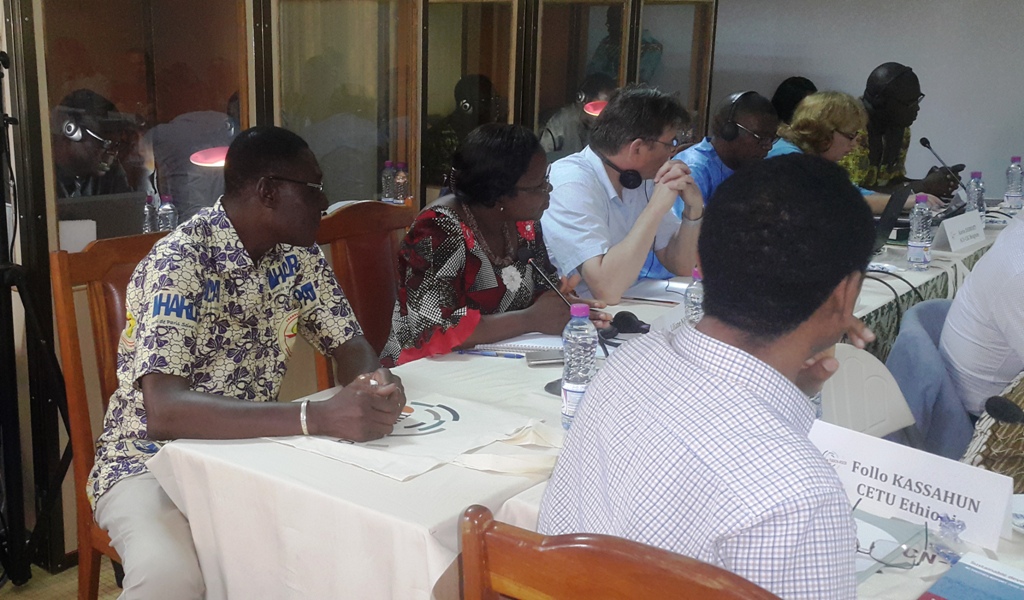
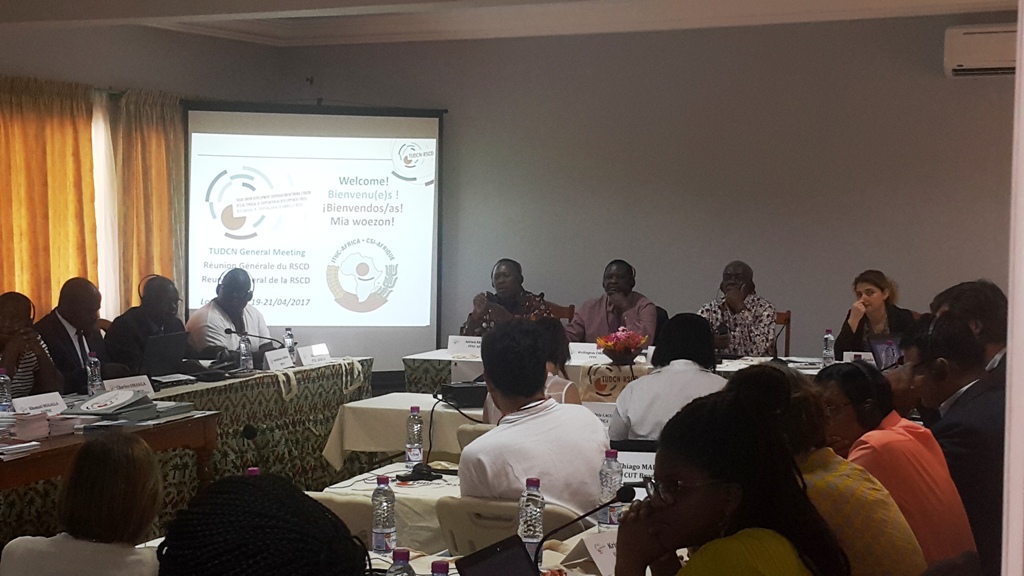
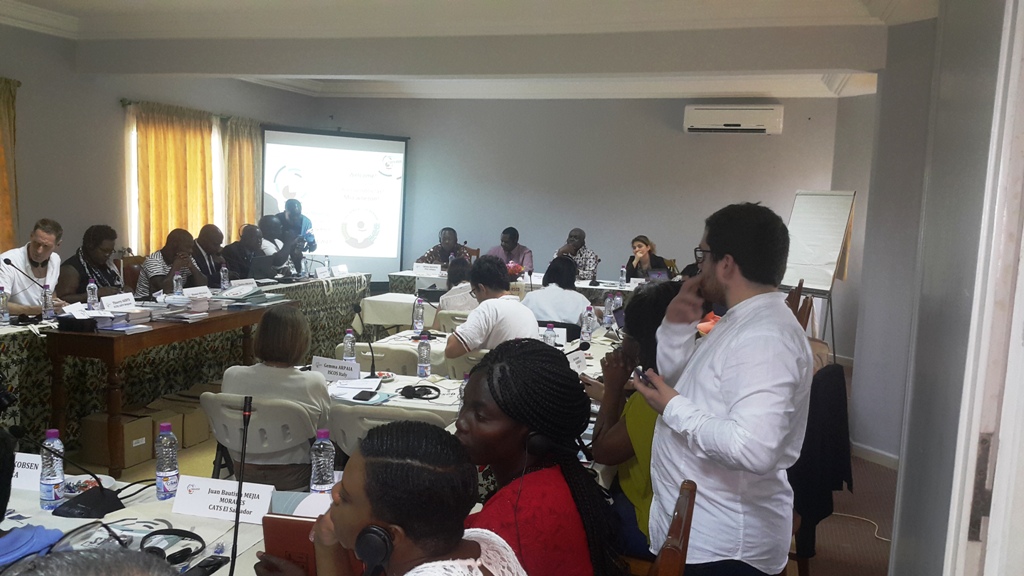
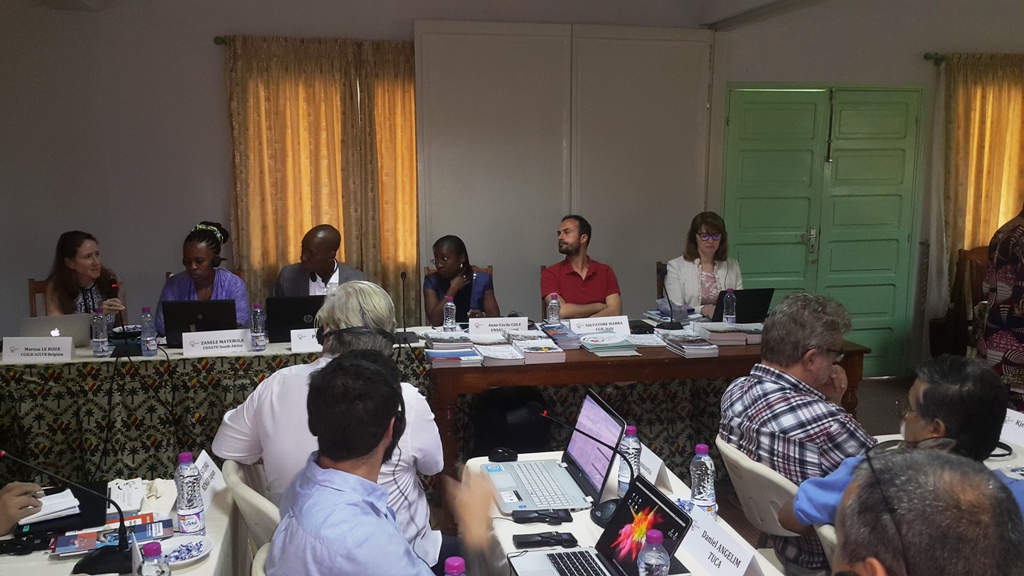
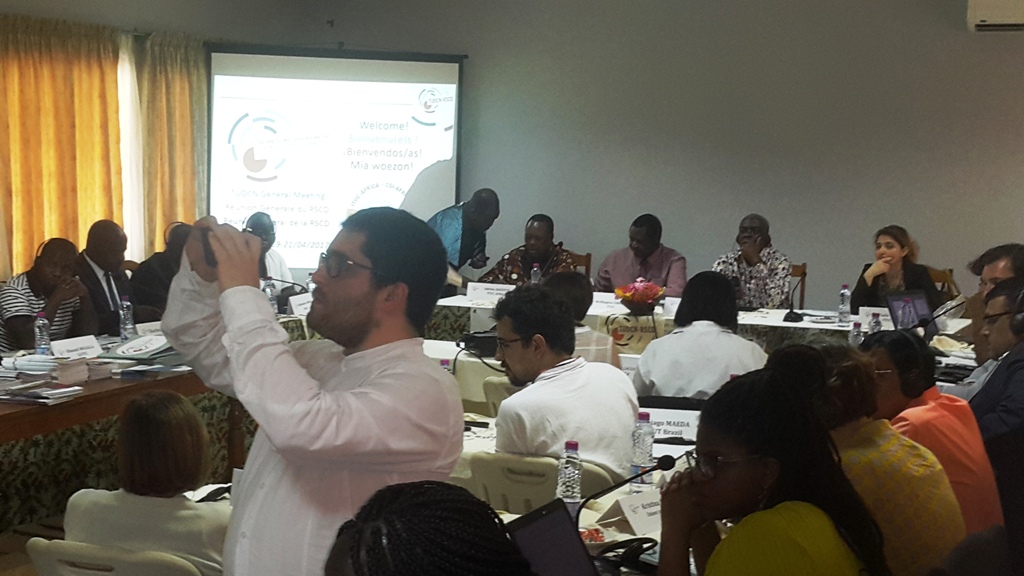
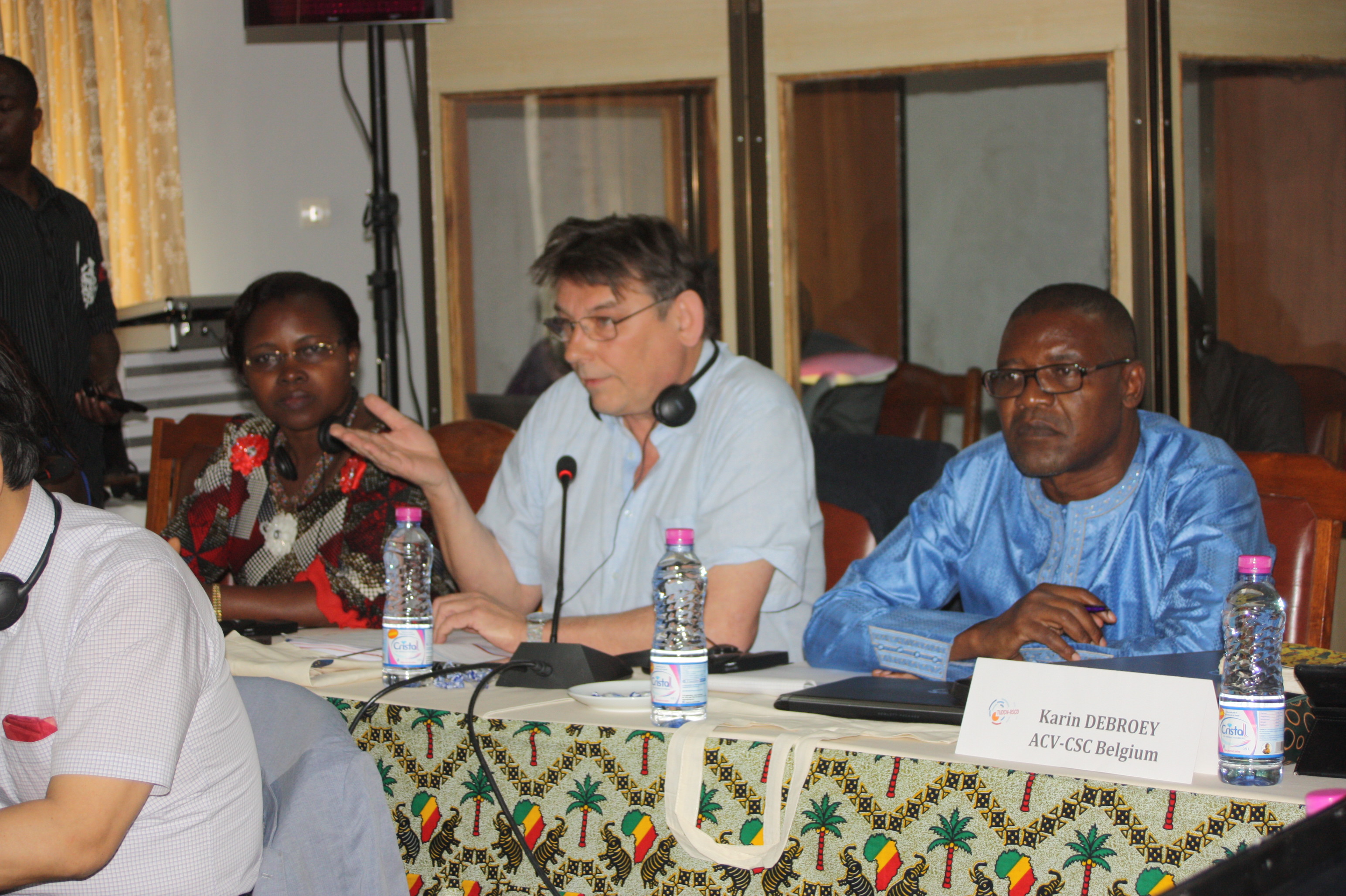
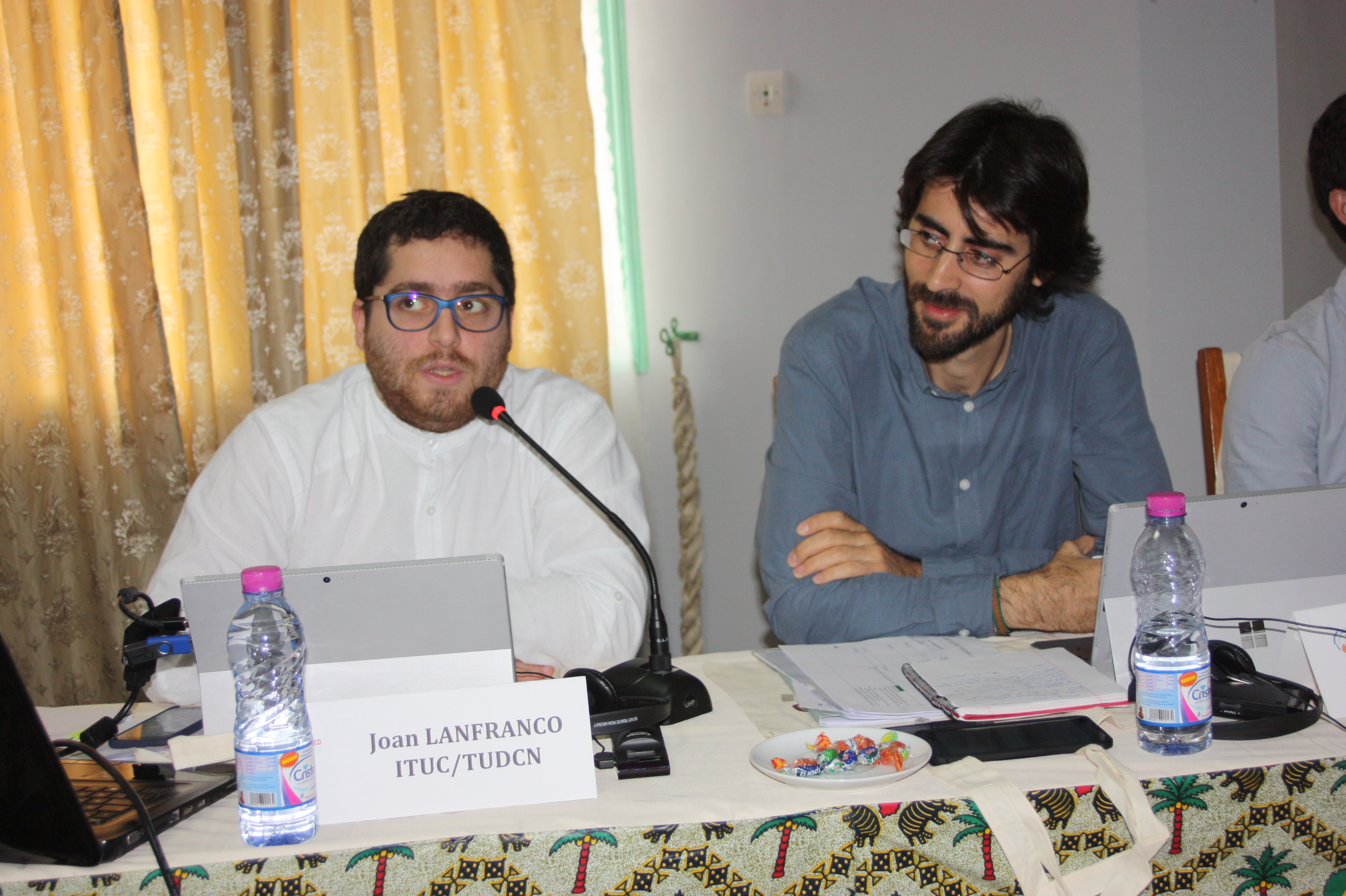
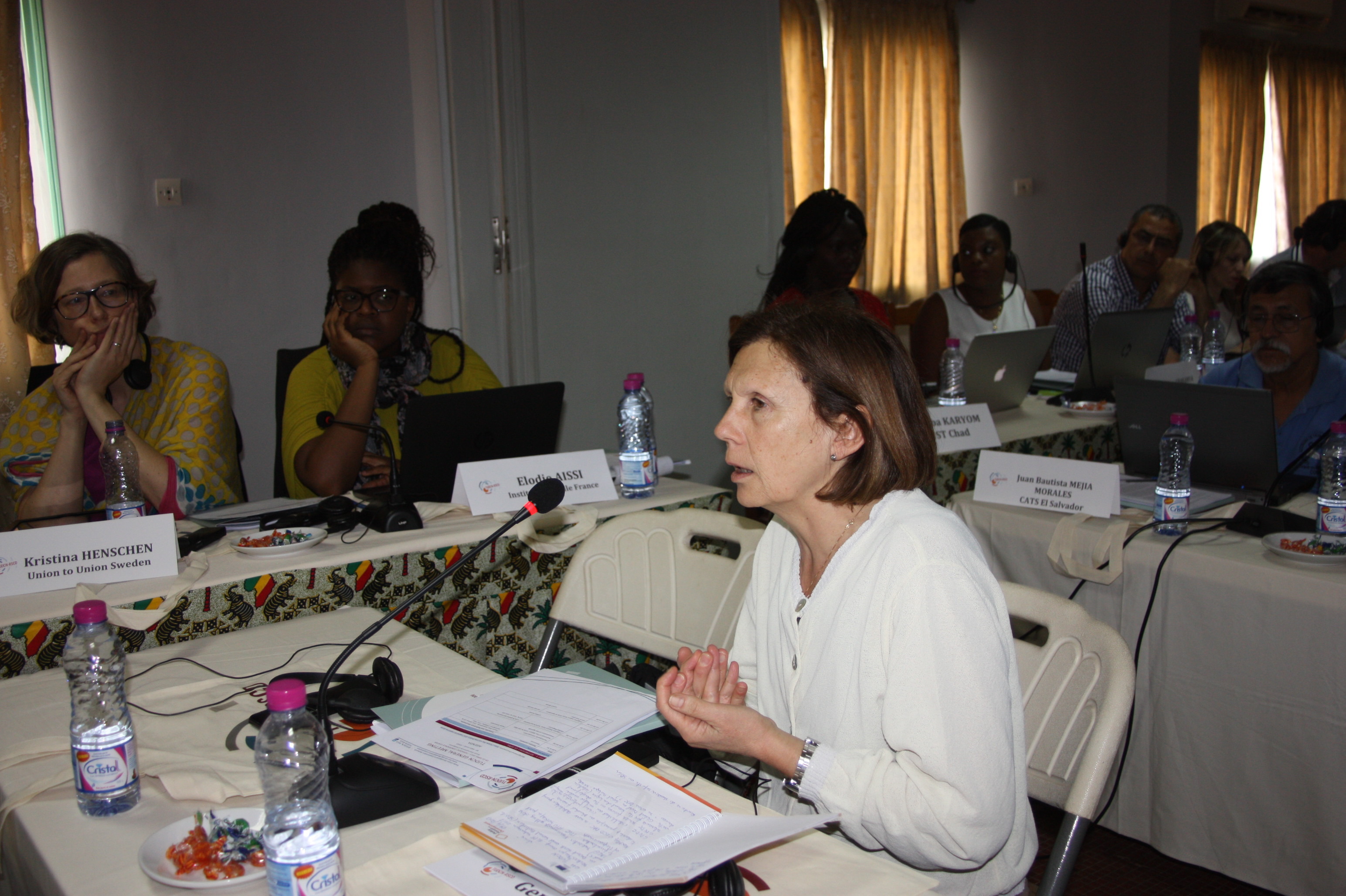
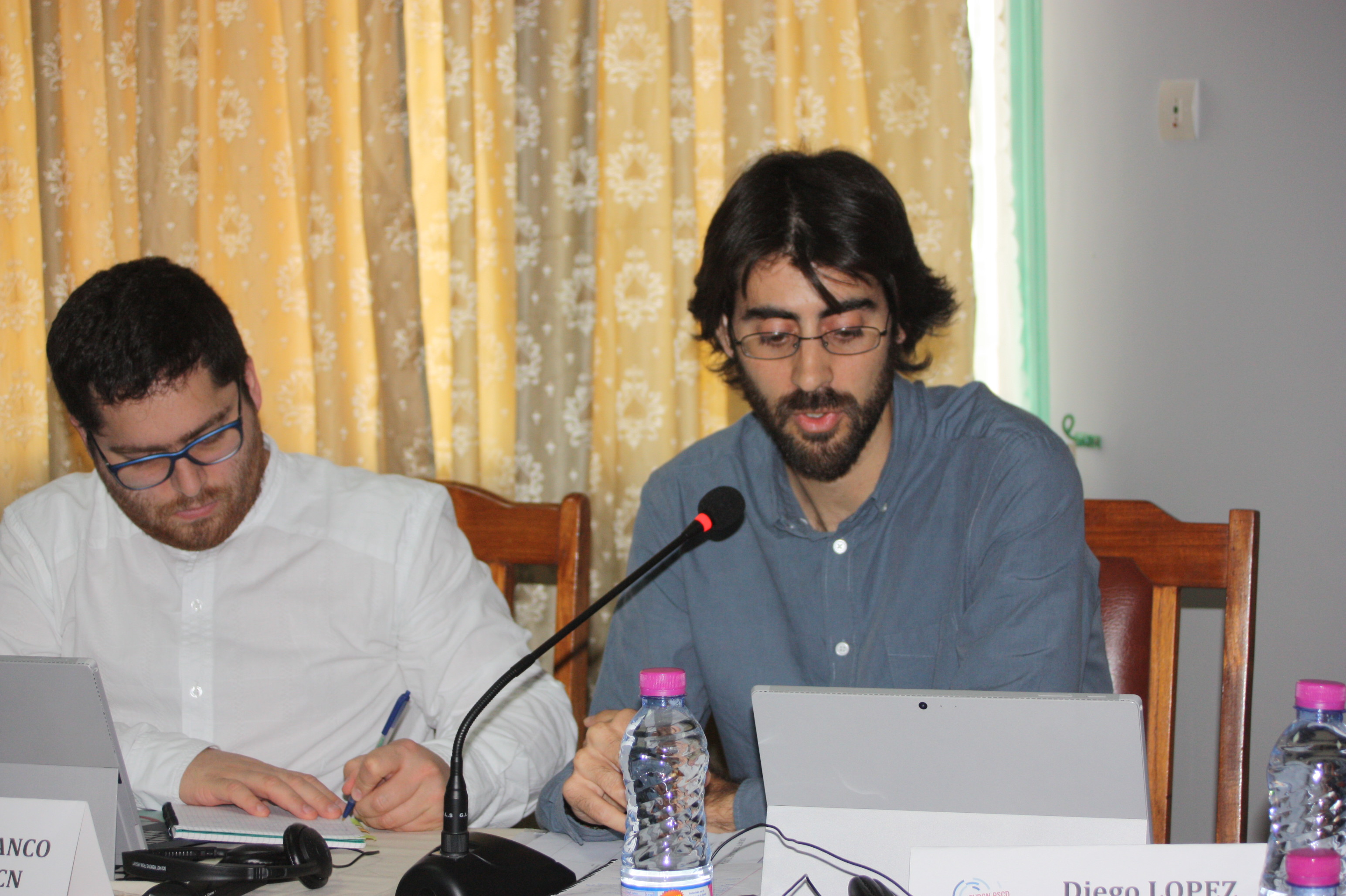
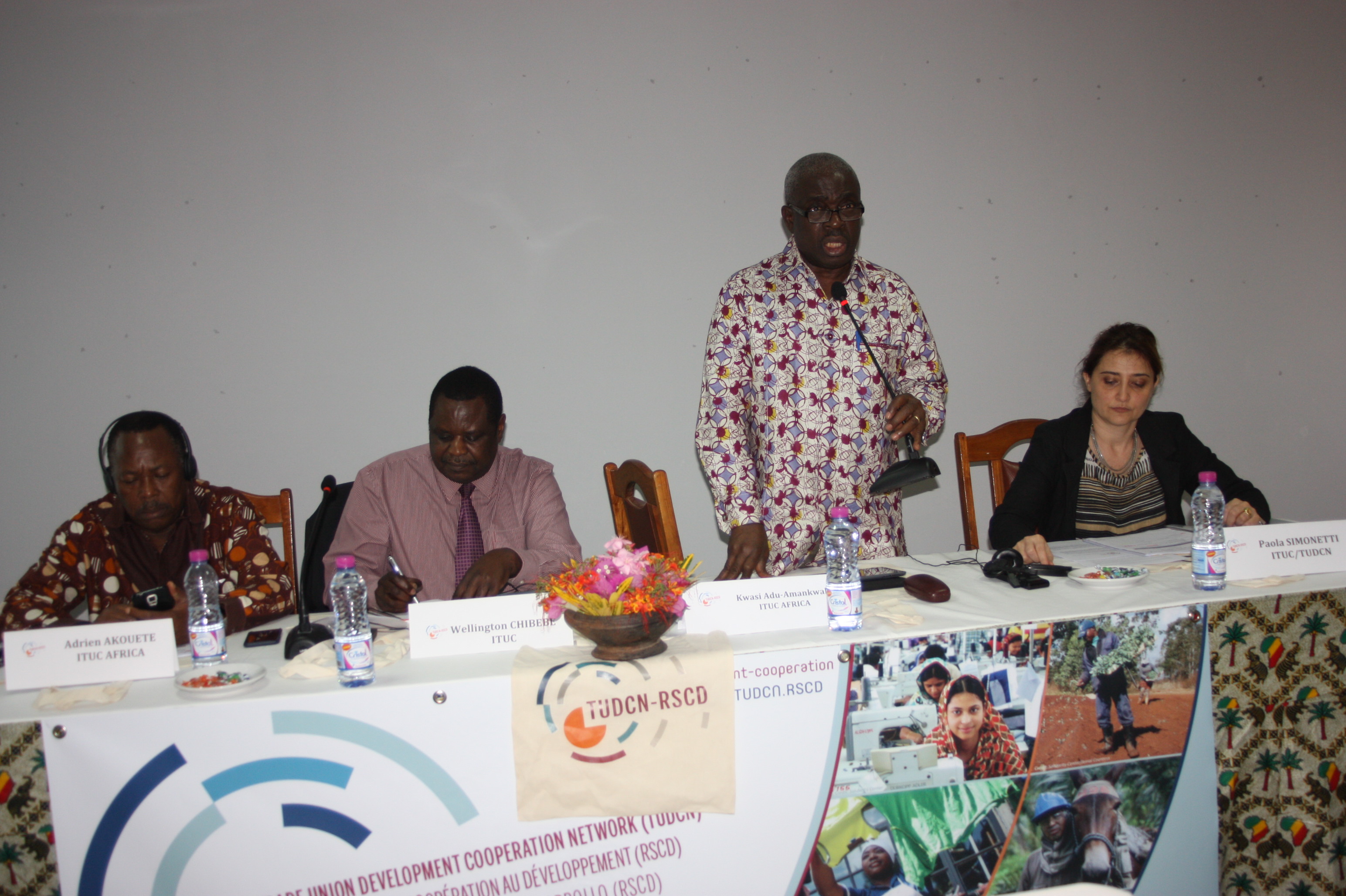

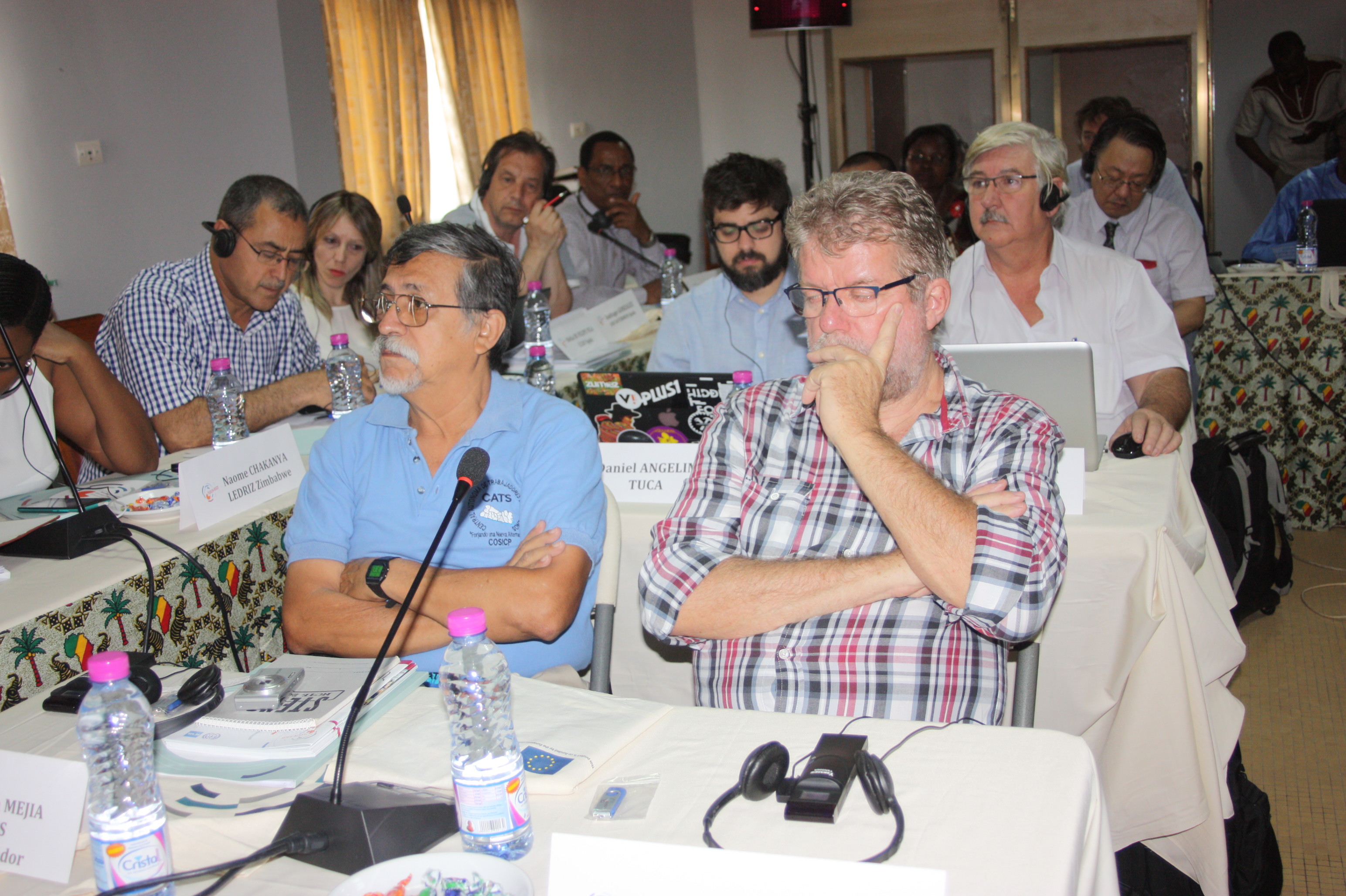
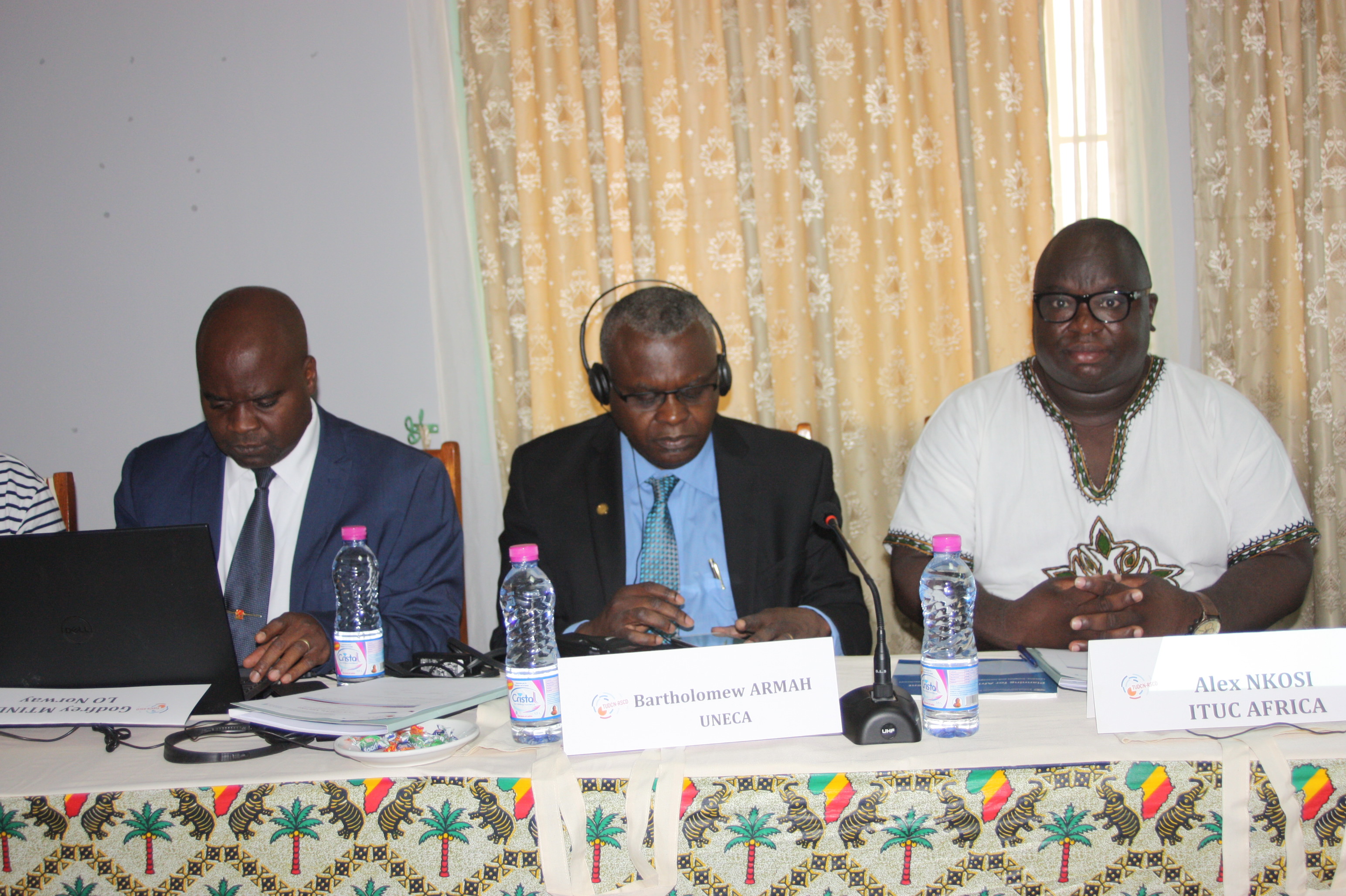
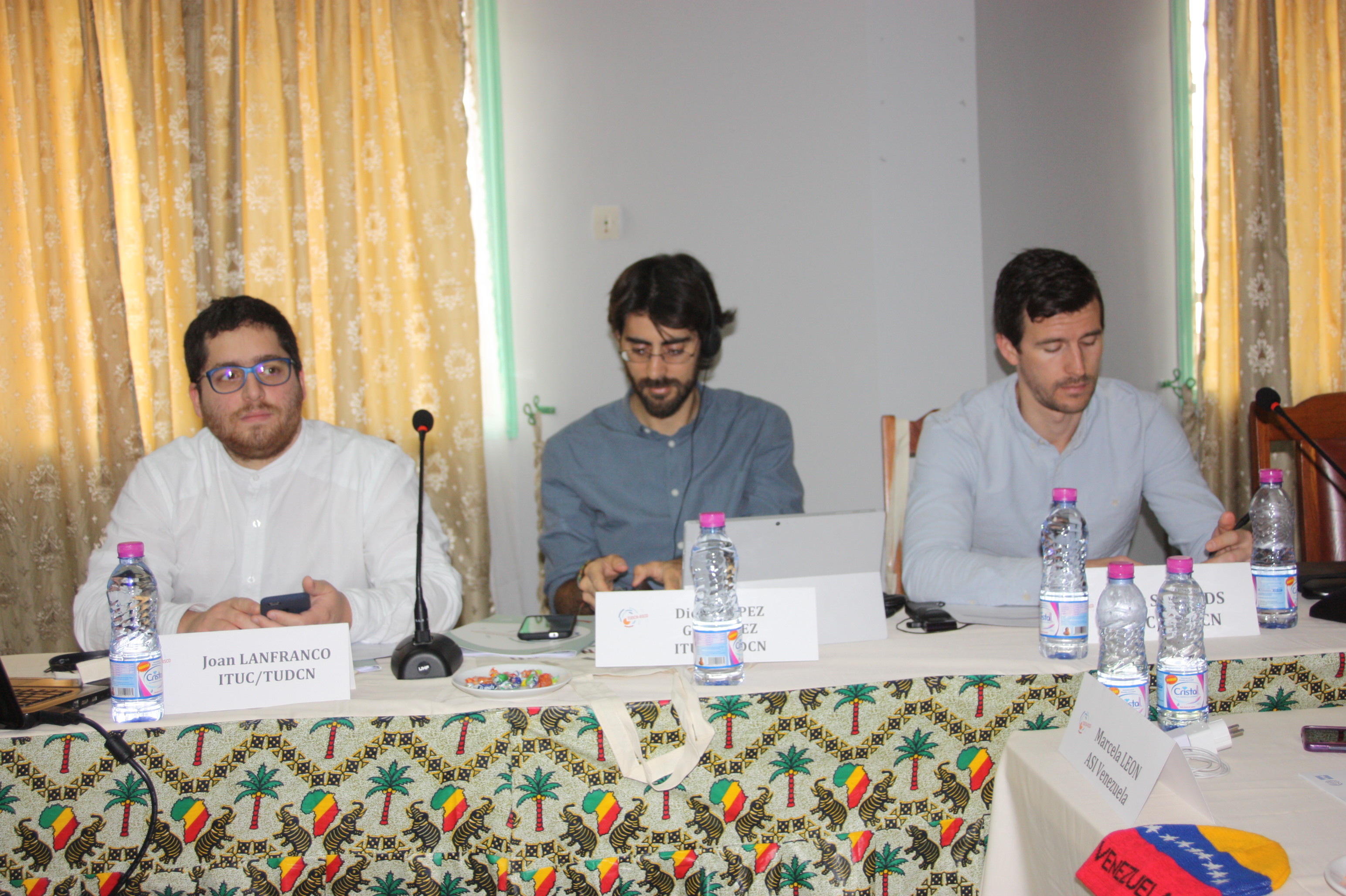
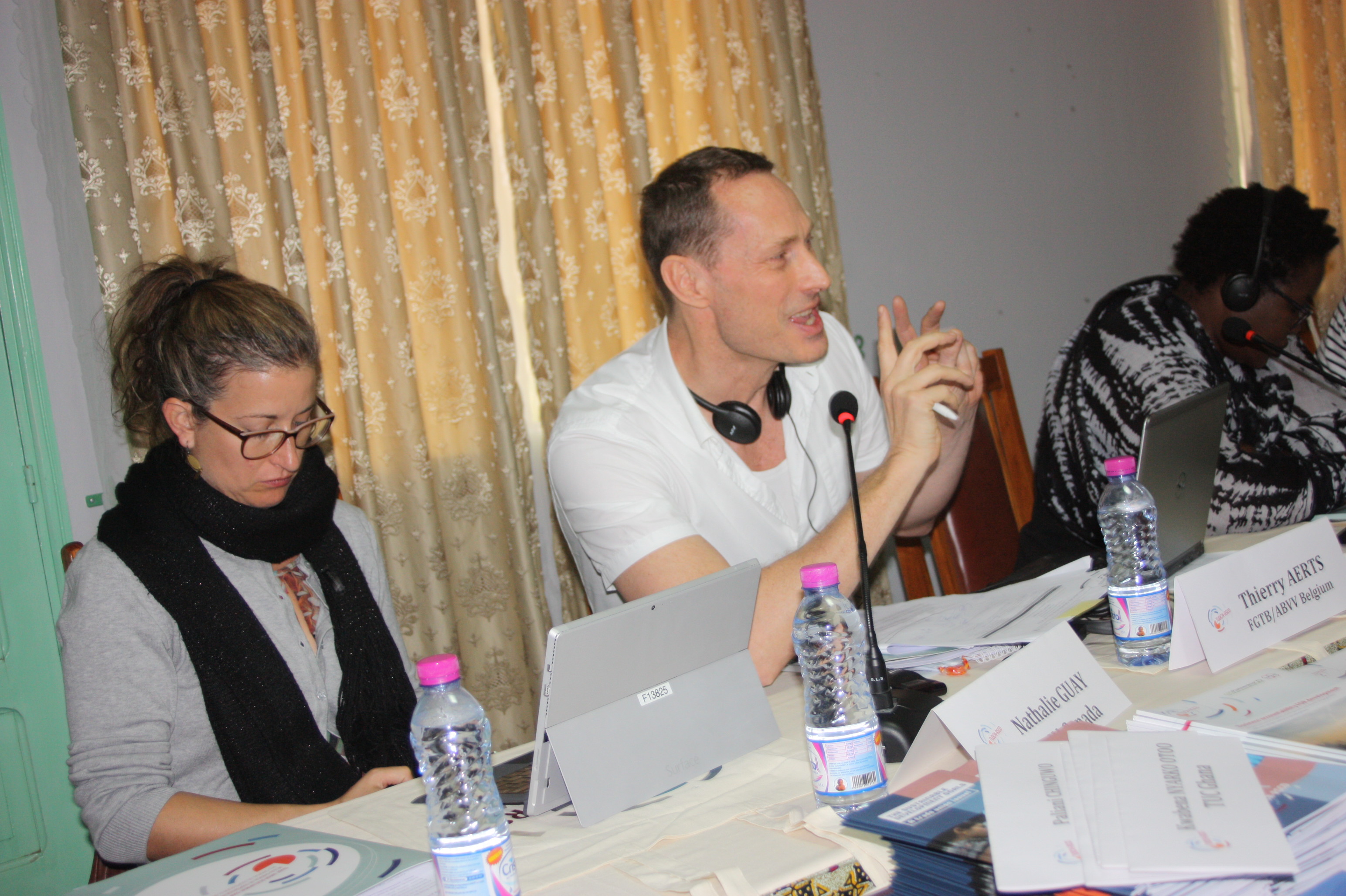
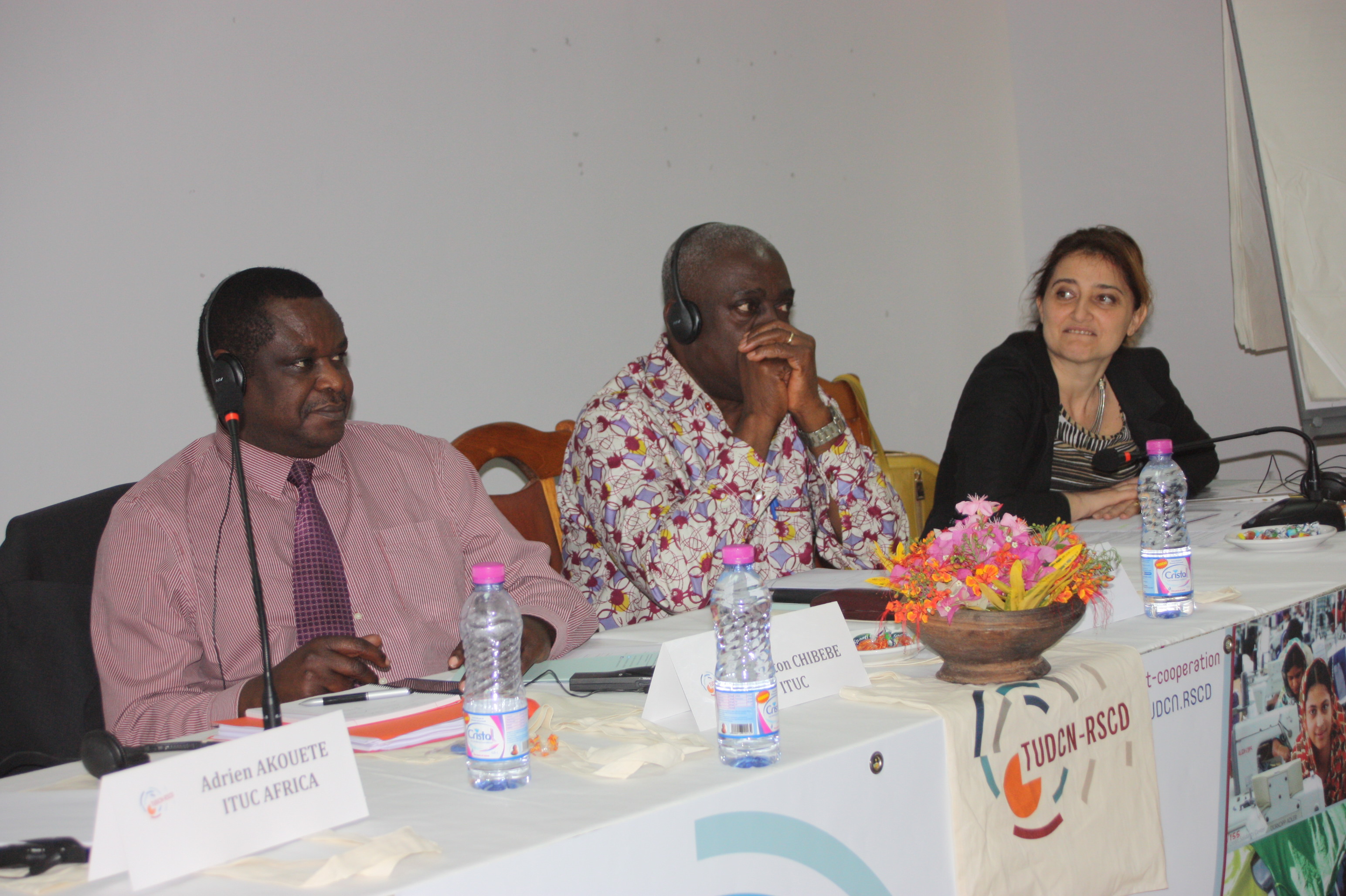
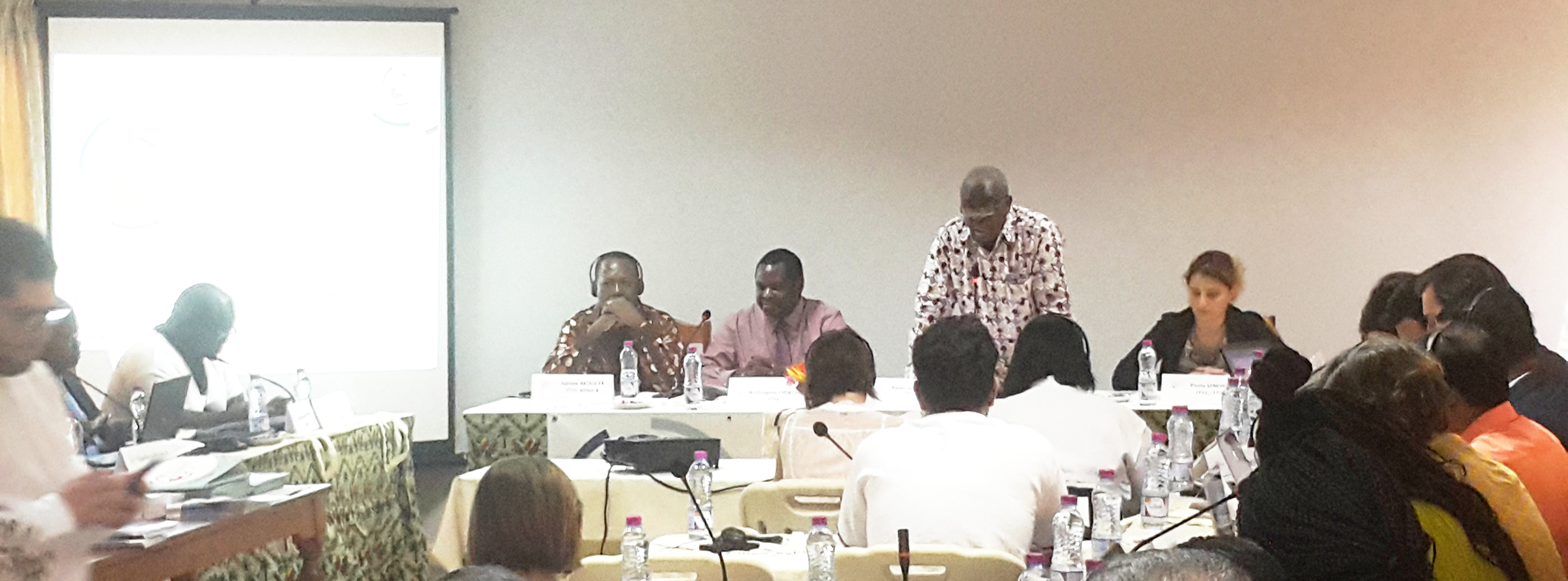
For a new trade unionism based on cooperation and a shared support for the development paradigm.
Promoting the decent work agenda remains the main objective of trade unions’ contribution to the development policy debate. The Decent Work Agenda, which is based on rights and democratic ownership, is fundamental to sustainable development, in contrast to the generally accepted measures that are only palliatives.
In addition, the Decent Work Agenda promotes policy coherence for development by involving key players in the economy and the world of work to negotiate, take control and mitigate risks in Economic, labor market, fair transition and social policies, as well as good governance, fiscal and development policies and other important areas.
These are the principles which have led the trade unions towards the definition of a strategy to promote ownership and effective participation of trade union actors in development policies.
About sixty participants, including representatives of national trade union organizations, solidarity organizations (SOS), the European Trade Union Confederation (ETUC), the Trade Union Advisory Committee to the OECD (TUAC), the regional organizations of the ITUC (Africa and Asia-Pacific) and the International Trade Union Federations (ISF) actively participated in this meeting.
The involvement of trade unions in the implementation of the UN 2030 agenda, the Europe-Africa summit and future approaches to trade union development partnerships, among others, were the points on the agenda meeting.
The meeting also provided an update on the progress of the TUDCN program since its inception.
Note that the RSCD has two closely related dimensions:
1) to support trade union positions, opinions and speeches in development policies
(2) to strengthen coherence between trade union partners in the field of international solidarity, by improving the coordination of trade union cooperation in development.

